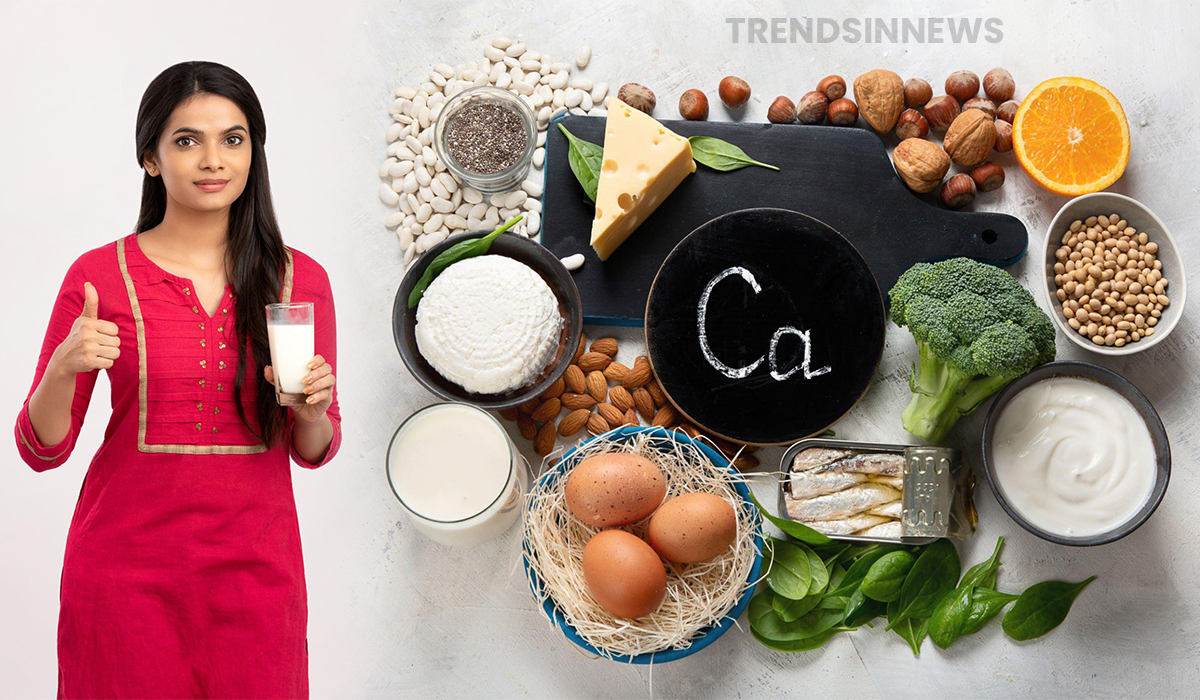Calcium is a mineral that is vital for every living organism, especially human beings. Human needs calcium for bone development and well functioning of the body. It is the fifth most available element on the earth. It helps to make healthy bones and teeth, regulate the heart and nervous system, blood clotting, and muscle contraction. Almost 99% of the overall boy’s calcium is present in our bones and teeth, and only 1% is found in muscle, blood, and other tissues.
Recommended Amounts
According to Recommended Dietary Allowance (RDA), calcium intake for:
Infant= 500 mg per day
Pre-teen= 800 mg per day
Women= 19 to 50 years of age- 1000 mg per day; 51+ age- 1200 mg; pregnant and lactating women- 1,000 mg
Men= 19-70 years of age-1,000 mg; 71+ years- 1,200 mg
Why is calcium more important for women than men?
Women have in generally lower bone density than men. The estrogen hormone in women helps to make their bone tissues. After menopause, the estrogen level decreases, which leads to less bone tissue. In the course of time, bone mass decreases, which can lead to osteoporosis.
According to the Harvard T. H. Chan School of Public Health website, “Women tend to experience greater bone loss than men later in life due to menopause, a condition that lowers the level of hormones that help to build and preserve bone.”
As per the article published in WebMD, “85% of postmenopausal women only got on average 727 milligrams of calcium per day, a full 500 milligrams below the recommended intake of 1,200 milligrams a day for women aged 50 years and older.”
So every woman, especially the elder and older ones, needs to regularly take sufficient calcium because they are more prone to osteoporosis due to heavy hormonal changes.
Calcium Deficiency Diseases
Osteoporosis and fractures: Calcium deficiency can lead to the weakening of bones which can increase the risk of breaking or fracture.
Hypocalcemia: It is a medical condition that occurs due to too much low calcium levels in the blood. This disease can affect the brain and cause neurological or psychological problems.
High blood pressure: On a longer time, poor intake of calcium can increase the risk of cardiovascular disease.
Osteomalacia: This disease is distinguished by softening of bone where bone becomes weak and easily breaks. It is occurred due to a persistent calcium deficiency.
Dental problems: A deficiency in calcium can lead to dental disorders such as tooth decay, gum disease, and others.
Sources of Calcium
There are two sources:
Food- Food is the best and most prescribed source of calcium. So it is always recommended to take calcium from food products rather than from supplements. Remember that vitamin D helps your body to absorb calcium. Low vitamin D leads to low calcium absorption in your body.
Calcium supplements– Any people who feel an insufficient intake of calcium can take calcium supplements in the form of tablets. Remember that they are available in different proportions and compounds, so take them under a doctor’s recommendation.
Calcium-Rich Food Sources
Milk-
Milk is considered one of the top sources of calcium. A single cup of cow’s milk can contain 276–352 mg, depending on whether it is whole or non-fat milk.

Source: https://www.healthshots.com/how-to/step-by-step-guide-to-make-skimmed-milk-at-home/
Nuts and Seeds-
Seeds are small nutritional powerhouses. They are almonds, sesame, poppy, celery, and chia seeds. Seeds contain high calcium.

Source: https://www.wholefoodsmarket.co.uk/
Cheese-
Among all cheeses, Parmesan cheese has the most calcium.

Source: https://www.healthyeating.org/nutrition-topics/milk-dairy/dairy-foods/cheese
Yogurt-
Yogurt is a fine source of calcium and is also rich in probiotics.

Source: https://www.foodandwine.com/recipes/vietnamese-style-homemade-yogurt
Leafy greens-
Leafy green vegetables are always an excellent source of vitamins and minerals. It contains prebiotic fiber and calcium.

Source: https://betterme.world/articles/green-leafy-vegetables/
Canned fish-
Fishes like canned salmon and sardines are good sources of calcium.

Source:https://foodandroad.com/canned-fish-portugal/
Possible Complications
Taking calcium in excess amounts can lead to possible complications:
- Kidney problems and stones
- Risk of heart attack
- Reduction in iron absorption
- Constipation
- Calcification of soft tissues and blood vessels
- Hypercalcemia
- Headaches and fatigue





